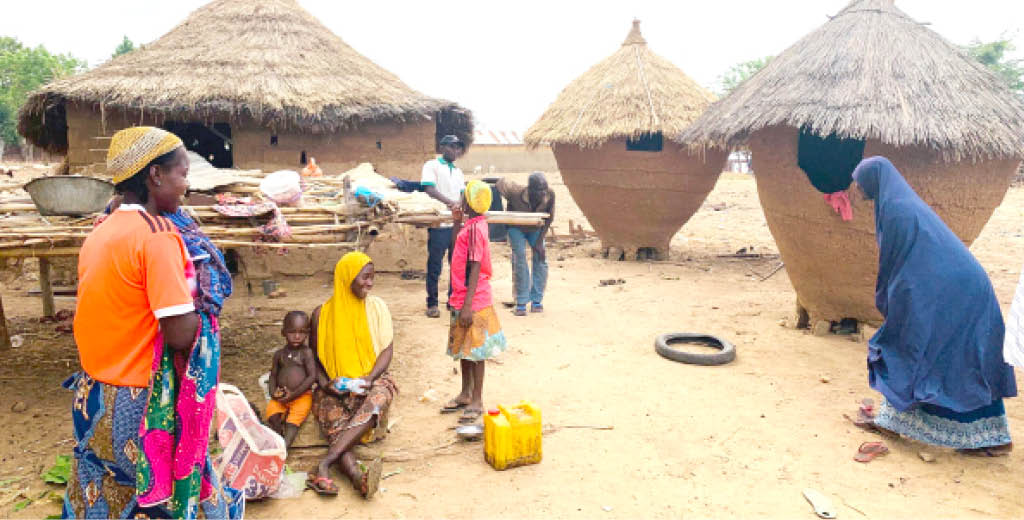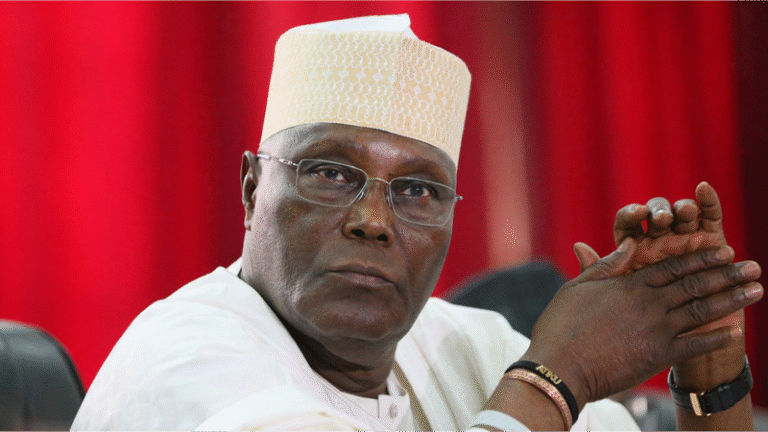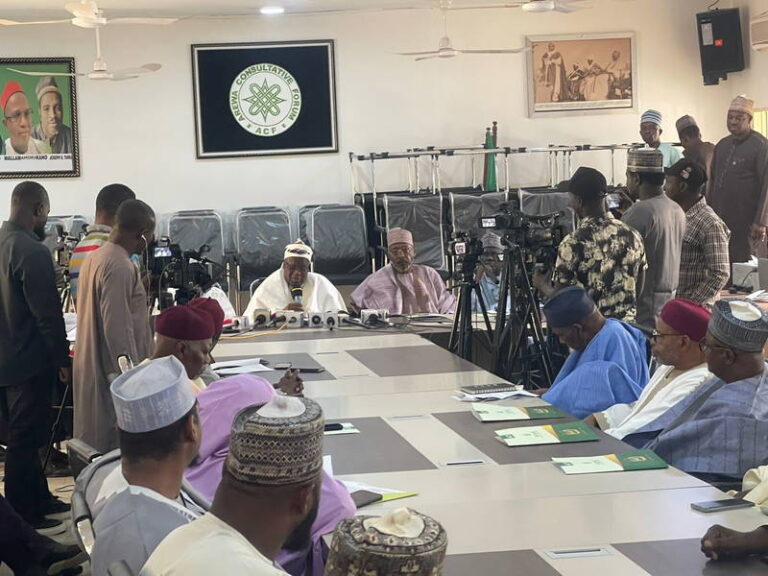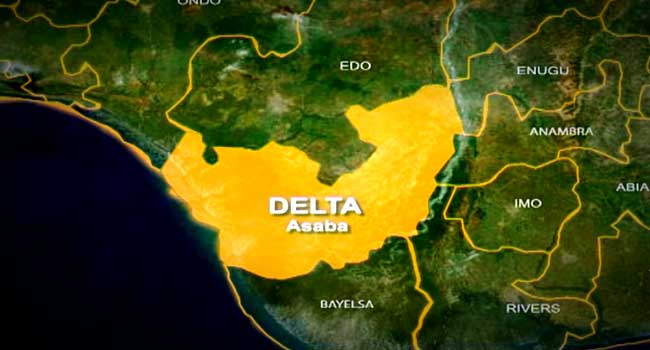
Rural dwellers in various parts of Nigeria have spoken up on factors fuelling poverty in local communities across the country, saying that high cost of living is affecting them negatively.
They expressed their views following the fresh concern raised by the World Bank over the rising poverty in Nigeria, saying that a staggering 75.5 per cent of rural dwellers live below the poverty line.
The World Bank, in its latest April 2025 Poverty and Equity Brief for Nigeria which was obtained Sunday, painted a gloomy picture of the state of poverty in the country, following worsening economic hardship and inequality among the rural dwellers.
According to the report, while 41.3 per cent of Nigeria’s urban population lives in poverty; the situation is significantly worse in rural areas where economic stagnation, inflation and insecurity have combined to deepen hardship.
Our correspondents report that rural dwellers are finding it difficult to survive because of land scarcity, food insecurity and rising living costs.
Urban dwellers take over farmlands in Kano
In Kano State, a growing trend is reshaping the social and economic fabric of rural communities, as urban dwellers increasingly return to the countryside to buy and dominate farmlands, leaving long-time rural residents to struggle with land scarcity, food insecurity and rising living costs.
Our correspondents report that rural dwellers are finding it difficult to survive because of land scarcity, food insecurity and rising living costs.
Urban dwellers take over farmlands in Kano
In Kano State, a growing trend is reshaping the social and economic fabric of rural communities, as urban dwellers increasingly return to the countryside to buy and dominate farmlands, leaving long-time rural residents to struggle with land scarcity, food insecurity and rising living costs.
Farmers and residents across several local government areas say the influx of city-based investors, often with greater financial means has led to widespread land acquisition, gradually displacing smallholder farmers and contributing to poverty and deteriorating living conditions in rural areas.
Danladi Yusuf, a farmer in Dawakin Kudu Local Government Area, said the trend is disrupting traditional livelihoods. “When these people from the cities come, they arrive with money. The average rural man doesn’t have the culture of money management,” he said. “Once you sell your land, that’s it. With land degradation and limited space, it’s now difficult to farm enough to feed your family for a year.”
In Bunkure Local Government Area, known for its all-season farming, particularly during the dry season, the dominance of well-funded urban farmers is threatening the sustainability of local livelihoods.
“Most of the dry season farming has been taken over by urban people who have the capital to do it,” said Abubakar Alhaji Musa, a resident of the area. “We now depend on what they produce to survive, and it feels like a slow path to economic slavery. The cost of living doesn’t show any sympathy for our struggles.”
Beyond food insecurity, the impact of this trend is also being felt in healthcare. In Warawa Local Government Area, Uwani Bala, a mother of nine, noted that inadequate nutrition is pushing families further into health crises. “Our husbands are busy trying to feed us, and most of the time, it’s not enough. Women are left to handle health issues,” she said.
She added that due to lack of money, many families rely on herbal and traditional medicine, turning to hospitals when illnesses worsen. “Western medicine costs money. Even if someone falls sick and dies, it’s not surprising, it’s just part of our reality.”
Malama Hafsa Uzairu, a mother of seven from Gwarzo Local Government Area, highlighted how the economic imbalance between urban and rural populations is exacerbating hardship. “What sells for N100 in the city is N120 here because of transportation. But we don’t earn as much as city people. Our purchasing power is weak,” she said.
She also pointed out that while rural dwellers are often assumed to suffer less from lifestyle diseases such as diabetes and hypertension, hunger and infectious diseases remain widespread. “We rarely get diabetes or hypertension like city people, but we battle hunger, malaria, and typhoid regularly. The hunger is real, even if it’s hard to prove that it’s killing people.”
The growing rural-urban economic divide, accelerated by land takeover and inflation, continues to deepen inequalities in Kano’s agricultural communities, with residents calling for urgent policy attention to protect local livelihoods and improve access to essential services.
Rural dwellers in Plateau express worry over rising cost of living
People at the rural communities in Plateau have expressed worry over the rising cost of living, saying the situation is affecting their living conditions on a daily basis.
Dauda Sunday, a resident of Dorowa-Babuje in Barkin Ladi LGA, told Daily Trust that “The current rising cost of living is not encouraging at all because we depend on farming activities but the prices of farming inputs are too expensive that we cannot engage in the farming like before. We cannot do the farming as expected because we cannot afford the farming inputs like fertilizer, insecticide among others. We buy a measure of rice at the rate of N2000 in the village. Tomatoes, pepper and food items are not affordable. The situation is really affecting our lives.”
Bashir Ibrahim, a resident of Muster Ali, a community in Bassa LGA, said life is no longer easy for residents in the area. According to him, “many families in this community can no longer put food on the table because things are very hard. Cost of commodities is skyrocketing and purchasing power is decreasing by the day. A measure of rice is said to be sold for between N2000 and N1900. Honestly, people are finding it difficult.”
Daily Trust gathered that many are living with illnesses without seeking hospital care due to lack of funds for medication.
John Bitrus, a resident of Mister Ali in Bassa, said, “I’ve been living with illness for months, and I don’t have the money to go to the hospital. Financial constraints are a significant challenge. I’m forced to live with the illness. Nobody is providing assistance.”
Musa Ibrahim, also from the community, said, “I’ve been ill since last year. I’m managing, but it’s tough due to the high cost of proper medication. It’s not been easy.”
Locals beg, can’t afford drugs in Benue
Rural dwellers in Benue State have lamented the high cost of living with many of them claiming starvation.
Our correspondent, who spoke to a section of villagers from across the state, reports that coping with living has become difficult and the means to stay healthy are farther from them than ever.
Onyeje Edward, a resident of Ipole-Otukpa in Ogbadigbo Local Government Area of the state, said her household lacks food to eat because they have no money to buy food.
“We have resorted to begging and sometimes depend on leftover grains at grinding corridors for food. We have already exhausted our harvest for last year and this is planting season without enough seed to plant, having sold them earlier to buy food.
“The situation is terrible. I think that is the reason my children (five) and I often fall sick. We don’t have money to buy medicine but resort to local concoction for cure,” she said.
Adanu Okpe of Ondo-Ugboju in Otukpo LGA, blamed too many deaths in recent times on hardship being suffered by Nigerians.
“I may not be able to ascertain whether it was the lack of food responsible for the rampant illnesses in my locality but it is obvious that the many deaths recorded in recent times may be a result of hardship.
“You know we reside in the village so our people who die at different locations are brought home for burial. There have been many in recent times. I believe economic hardship may be the leading cause as people develop high blood pressure and suddenly slump to death,” Okpe added.
For Atule Anthony, a resident of Adaka, a rural community in Makurdi LGA, the hunger among villagers can only be imagined.
He said that people like him often go to bed hungry after managing to scout a handful of meals for his household.
Anthony said, “There is no money to buy food or drugs. Everything seemed to be going wrong. People are dying; many people are ill without means to afford drugs and others have no food to eat.”
DAILY TRUST.




